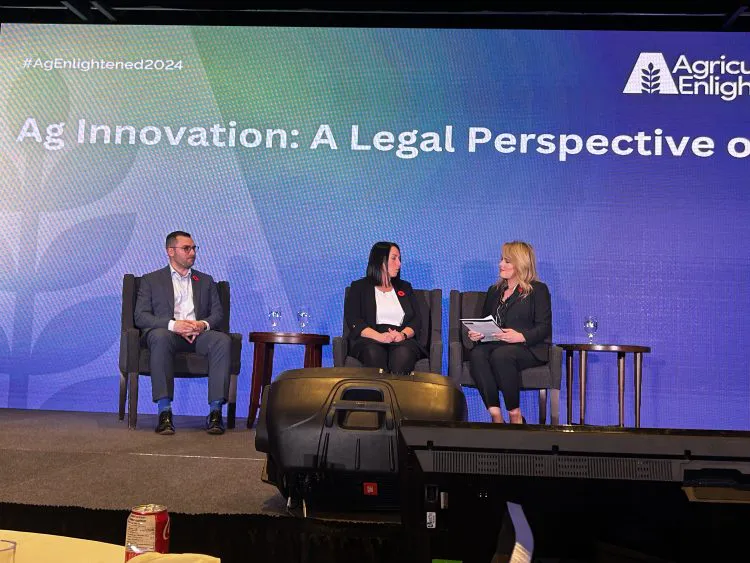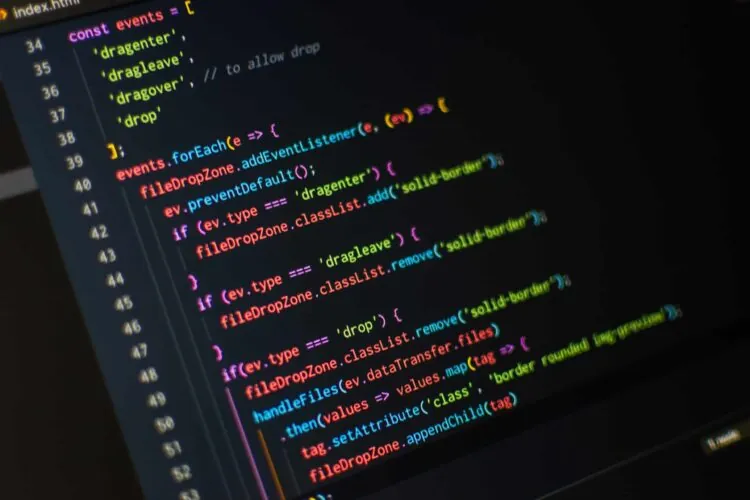Bill before Parliament supports the right to repair

Many of the devices we use in the 21st Century are controlled or regulated by software. The agriculture industry has become increasingly reliant on software to maintain high performance and safety standards for farming equipment — but repairing high tech equipment or farm equipment software isn’t always a straightforward task.
That’s in part because Canadian copyright law currently contains provisions that prohibit the circumvention of “technological protection measures” (“TPM”). TPMs are a form of “digital lock” used in a variety of sectors to control access to digital content and prevent unauthorized access, reproduction or distribution of digital products such as music, film and software. Since coming into force in 2012, section 41 of the Copyright Act has guarded against the unauthorized modification of TPM-protected software on software-enabled devices.
This has meant that farmers are often required to go to original equipment manufacturers (OEMs) when the software used in farming machinery needs repair. But that could soon change due to a bill making its way through the House of Commons.
What is Bill C-244?
On October 5, 2022, Bill C-244, An Act to amend the Copyright Act (diagnosis, maintenance and repair), passed its second reading and was referred to the committee stage. The bill seeks to amend section 41 of the Copyright Act to permit the diagnosis, maintenance and repair of TPM-protected products.
Bill C-244 follows hot on the heels of the Freedom to Repair Act introduced in the United States House of Representatives on February 2, 2022. The U.S. Act seeks to amend the Digital Millennium Copyright Act, enabling users to circumvent digital locks to diagnose, repair and maintain software-enabled devices. As of the date of writing, the U.S. Act has been referred to the committee stage but has not been made law.
Section 41 of the Copyright Act
In the Copyright Act, a TPM is a form of technology, device, or component that is designed to control access to, and/or modification and reproduction of, a copyright-protected work. In many cases, the copyrighted work is computer code.
TPMs are frequently used by copyright holders to prevent against unauthorized use or distribution of protected works such as music, films, television shows and software. Currently, circumventing (including avoiding, bypassing, removing or deactivating) a TPM is prohibited under section 41.1 of the Copyright Act. Accordingly, the copyright in TPM-protected works is deemed to be infringed when:
- Actual circumvention of the TPM has occurred
- Individuals offer TPM circumvention services to the public
- Individuals manufacture, import, distribute or offer for sale or rental any technology that is produced primarily to circumvent TPMs
Pushback against Section 41
In 2009, most Canadian automobile manufacturers came to a voluntary agreement providing third parties access to their computer code for the purpose of diagnosing and repairing, therefore enabling consumers to choose where they have their vehicles repaired post-warranty. However, in the intervening years, the issue of the right to repair has extended far beyond the automotive industry and questions have resurfaced regarding the need for legislation.
Consumer advocates and several Members of Parliament have pushed back against section 41, alleging that it contributes to increasing technological waste and modern day “throwaway culture.” Specifically, consumer advocates argue that the expanding issue of “planned-obsolescence” — the practice of producing technologies that rapidly become obsolete — warrants an exception in the Copyright Act to repair devices.
To address these issues, Bill C-272 — which, notably, had the exact same language now used in Bill C-244 — was introduced to amend the Copyright Act in 2021 and received unanimous parliamentary support. However, that bill died on the floor after the 2021 federal election was called. Bill C-244 is the successor to Bill C-272, and has also obtained virtually unanimous parliamentary support on a second reading.
How will Bill C-244 affect the ag industry?
Bill C-244 appears to create a carveout in section 41 of the Copyright Act’s prohibition on circumventing TPMs for the limited purposes of diagnosing, maintaining and repairing software-enabled devices. In effect, this means that unauthorized third parties will not be prohibited from diagnosing and performing repairs on software-enabled devices to which a TPM is applied.
As a result, owners of vehicles, tractors and other equipment and devices that contain integrated software would be permitted to have their TPM-subject equipment and devices serviced by non-OEM service providers of their choosing.
Members of Canada’s agricultural technology and manufacturing sectors have voiced concerns that Bill C-244’s proposed amendments will not only enable diagnosis, maintenance and repair, but will also lead to unauthorized or inappropriate modification of software and a reduction of performance and safety standards in the industry. More specifically, concern has been raised that permitting the circumvention of digital locks on devices could enable the overriding of performance, safety, and emissions management features designed to optimize device performance and protect end users.
If passed, Bill C-244 will still need to be interpreted by a Canadian court; however, a plain reading of the bill, along with parliamentary speeches and remarks, indicates that its effects are intended to be narrowly targeted. In particular, Bill C-244 provides that an individual who circumvents a TPM may only do so “for the sole purpose of diagnosing, maintaining or repairing a product in which a computer program is embedded.” Additional purposes, such as modification, customization or alteration of a product or its embedded software, are not contemplated.
In Bill C-244’s current state, the proposed legislation does not expressly grant individuals or third parties permission to override performance and safety features that may be present on devices. The creation of any inadvertent or indirect ability to perform such overrides will surely be the subject of discussion regarding Bill C-244, perhaps with the aim of arriving at legislation that contains a right to repair without enabling a broader, unfettered right to modify.
Despite Bill C-244 having passed its second reading with unanimous support, whether it becomes law is not entirely certain. We’ll continue to monitor the bill as it works its way through Parliament – and if you have any questions about how Bill C-244 could affect your business, we’d be happy to assist you.
This article appears in our 2022 Agriculture & Food Year in Review. Download the free ebook.
Note: This article is of a general nature only and is not exhaustive of all possible legal rights or remedies. In addition, laws may change over time and should be interpreted only in the context of particular circumstances such that these materials are not intended to be relied upon or taken as legal advice or opinion. Readers should consult a legal professional for specific advice in any particular situation.
Author: Adam Lakusta


